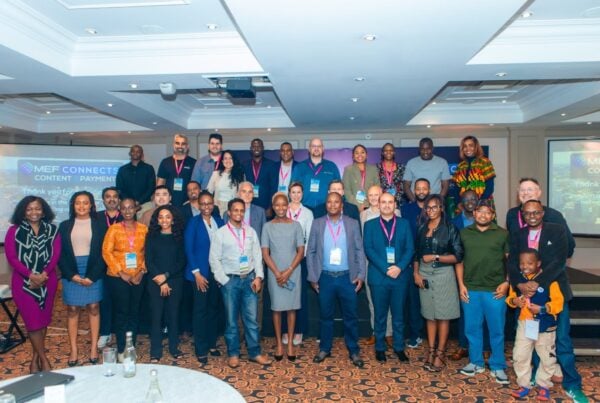Could accessing your banking info ever be as easy as opening up a Google Map? Ahead of a MEF-sponsored panel on the personal data economy at Money 2020, Tim Green looks into the drive towards open banking APIs…
Next week, the world’s financial futurologists head to Copenhagen for Money 2020 Europe. It’s the big talking shop for next-gen banking. And MEF will be there.
We’ll be hosting a panel session on the personal data economy. It should be good. I’ll be moderating the event, and I know from talking to many banking execs over the last year or two that awareness of the ‘internet of me’ concept is pretty low.
I expect we’ll open a few eyes next week.

But our panel session comes at exactly the right moment.
After all, Money 2020 comes at a time when many are asking: are banks ready to share their data?
This has been one of the central questions facing the financial community ever since the fintechs started chipping away at their market shares at the start of the decade.
Clearly Facebook, Amazon, Google and others have spread their tentacles far and wide by opening up their APIs.
These open APIs are the only reason you can post on Facebook, buy a book or see a Google Map when you’re on a third party web site or app.
So why not do the same with bank accounts?
Well, unsurprisingly, it’s because banks are a bit slow and conservative. And quite right too. When you want someone to look after your money, you want them to be slow and conservative. But, now they’ve had a bit of time to think about it, it’s obvious bankers are embracing the idea.
In the ‘internet of me’ vision, a user will have their own private data locker. This will include access to their bank account. When any third party (insurer, school, employer, retailer etc) wants access to it, the user can grant permission. But here’s the important bit: the third party just sees the data; it never owns it.
A good example is Jamie Dimon.
As the CEO of JPMorgan Chase, bankers don’t get any more senior.
Here’s what he told his shareholders in his annual letter last year.
“In the future, instead of giving a third party unlimited access to information in any bank account, we hope to build systems that allow us to ‘push’ information — and only that information agreed to by the customer — to that third party.”
Dimon’s comment was a coded rebuke to companies like Mint or Acorns, which use a technique called screen scraping to expose bank information. With an account holders’ permission, they retrieve all data then bundle it into products that give more insight into a person’s financial life.
It’s not the best solution – though its existence reflects a desire for these products. As Dimon suggests, a better one would be giving people the power to pick and choose what they need – without having to go into the bank app or bank website and find it themselves.
And now it’s happening. Just days ago, for example, Wells Fargo teamed up with Xero, which makes accounting software. The deal means that small business owners can call up their bank data inside Xero rather than add it themselves.
This is one of many projects US banks are launching.
Many MEF members will know that, in the EU, open banking will not just be a nice option for much longer. It will be the law.
In January 2018, the Payment Services Directive (PSD2) will come into force. It compels banks to open up their APIs.
This will allow third parties described as Payment Initiation Service Providers (PISPs) to directly access customer accounts by connecting directly through a standard API.
In fact, this process is already underway. It’s what Ideal does with great success in the Netherlands. And MEF member Zapp is building a system to do the same in the UK.
And the ultimate destination of this openness? Well, it could come down to the individual.
In the ‘internet of me’ vision, a user will have their own private data locker. This will include access to their bank account. When any third party (insurer, school, employer, retailer etc) wants access to it, the user can grant permission. But here’s the important bit: the third party just sees the data; it never owns it.
That works for everyone. The user gets better, quicker services. The third party avoids the cost and legal burden of storing private date.
This, of course, is the big idea set out by PIMS (personal information management services) like Meeco, who will be taking part in the MEF panel.
Here are the details;
Wednesday June 28, 3:55pm: The power, potential and perils of personal data: How regulation is driving innovation
Featuring Glyn Povah, New Business Development , Telefónica Digital Cecile Wendling, Head of foresight , AXA, Katryna Dow, CEO and Founder , Meeco Esme Harwood, Open Banking director, Barclays.
It will be the only session at the event dedicated to this critical topic.
If you’re in Copenhagen next week, don’t miss it.
Want to be featured on the MEF Minute?
The MEF Minute is an award winning blog that provides a cross-ecosystem and international perspectives on all things mobile. With contributions from MEF’s members and other industry experts it is a dedicated global news resource and thought leadership platform.
We welcome contributions from members and non-members across a range of formats including opinion pieces, industry views, stats, videos and infographics. MEF Minute offers a 360 look at any given topic impacting the mobile ecosystem whether that be from a MNO, enterprise, developer or provider perspective.







One Comment